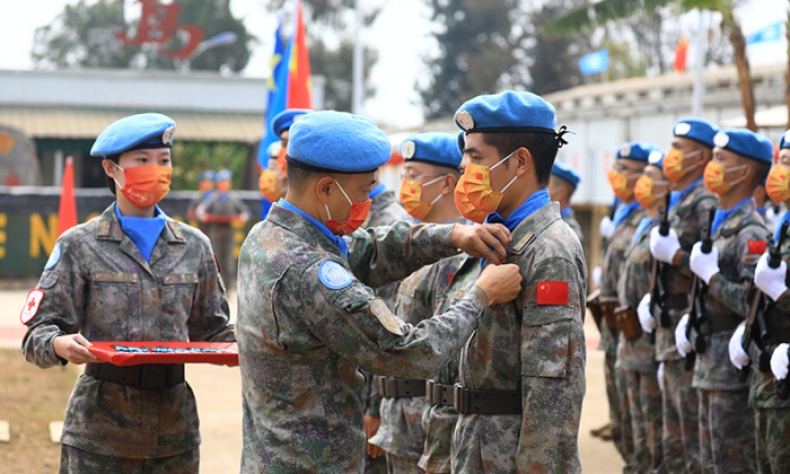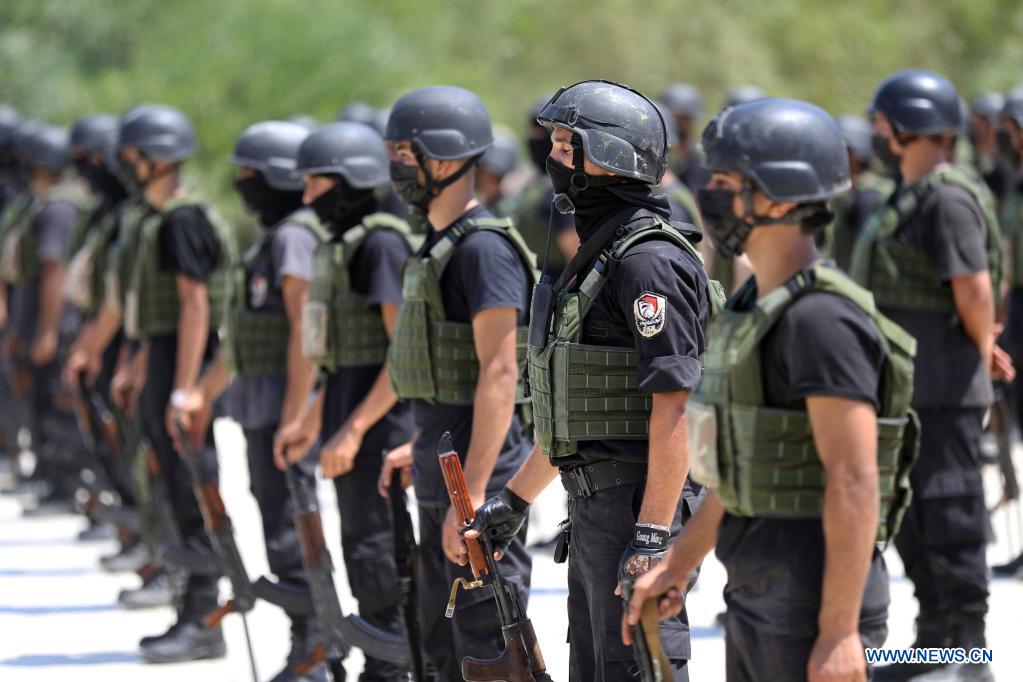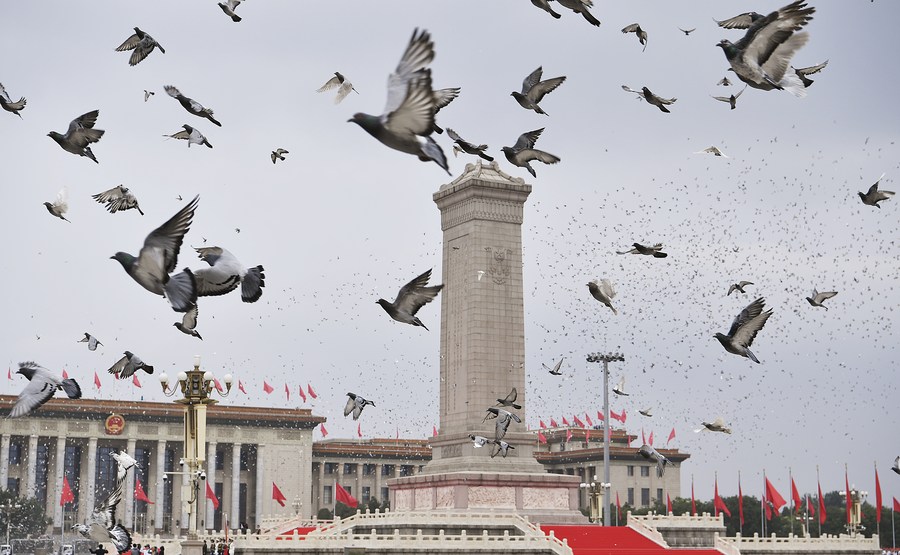A New Vision for Collective Security

Countries around the world are like passengers abroad the same ship who share the same destiny, for the ship to navigate the storm and sail towards a bright future, all passengers must pull together.
Escalating regional tensions and their impact beyond the centre of conflict is generating and inflaming security threats across countries. For example, the immediate consequence of the collapse of the Muammar Gaddafi regime in Libya is the flow of light weapons and military instructors, which have boosted insurgencies in the Sahel region of West Africa, especially Nigeria where extremist insurgency has mutated to violent criminal activities of banditry and kidnapping.
The Russia-Ukraine conflict has upended regional stability in Europe with consequences and effects beyond the immediate theatre of the conflict. With the confluence of these and other factors escalating tensions and fuelling the security, governance and production capacity deficits across the world, China’s recent Global Security Initiative is worth consideration.
Worsening security environment
The violent overthrow of the government of Libya in 2011, with the active connivance of the North Atlantic Treaty Organisation (NATO), and the subsequent assassination of Gaddafi was the crucial enabler of the chain of insurgencies, banditries and other forms of criminal activities that have engulfed West Africa’s Sahel region.
Nigeria’s northeast region has long been plagued by the insurgency of Boko Haram and the Islamic State in West Africa Province. The northwest and other parts of the country are not spared by the spate of violence triggered by the flows of illegal weapons from Libya.
The contemporary security challenges that have considerably impaired the stability and development of the countries in the Sahel region of West Africa in particular, and the rest of the continent in general, would have been avoided had the NATO initiative for violent regime change in Libya given way to a negotiated settlement of the conflict, which was an initiative promoted by the African Union (AU) but vehemently rejected by the Libyan armed opposition. The alliance went as far as invoking its article 5 of collective defence, which had absolutely no application to the then-Libyan crises.
Ironically, in achieving regime change, NATO abdicated responsibility to protect Libya’s national assets including its heavy military armoury, paving the way for it to collapse and serve as a conduit for weapon flows to the Sahel region and beyond. The illicit weapon flows and the burst of open market for military instructors and trainers fed directly into the then simmering insurgency in the region and boosted it to epidemic levels, leading to its spread to more countries.

A new initiative
At the Boao Forum for Asia Annual Conference 2022, Chinese President Xi Jinping, while announcing the proposal for the Global Security Initiative, outlined that its crux would be “to stay committed to the vision of common, comprehensive, cooperative and sustainable security; stay committed to respecting the sovereignty and territorial integrity of all countries, uphold non-interference in internal affairs and respect the independent choices of development paths and social systems made by people in different countries; stay committed to abiding by the purposes and principles of the UN charter, reject Cold War mentality, oppose unilateralism and say no to group politics and bloc confrontation; stay committed to taking the legitimate security concerns of all countries seriously, uphold the principle of indivisible security, build a balanced, effective and sustainable security architecture and oppose the pursuit of one’s own security at the cost of others’ security.”
Further, the Chinese leader proposed that any meaningful and collective global security architecture must “stay committed to peacefully resolving differences and disputes between countries through dialogue and consultation, support all efforts conducive to the peaceful settlement of crises, reject double standards, and oppose the wanton use of unilateral sanctions and long-arm jurisdiction; stay committed to maintaining security in both traditional and non-traditional domains, and work together on regional disputes and global challenges such as terrorism, climate change, cyber security and biosecurity.”
President Xi pointed out that “countries around the world are like passengers abroad the same ship who share the same destiny,” and therefore, “for the ship to navigate the storm and sail towards a bright future, all passengers must pull together.”

China’s new Global Security Initiative, which seeks to return consultation and dialogue to the heart of promoting collective global security, would eliminate regime change advocacy and its concomitant consequence of security threats to other countries and regions beyond the immediate hotspot.
Taking on an enormous international responsibility to promote collective security and common development, China has outlined constructive, measured and practical ways to deal with the numerous challenges that confront humanity. The initiative is significant as China has the political will and, more importantly, enormous goodwill across the world to see it through.
China’s Global Security Initiative advocates achieving collective security through dialogue and consultations, and instituting early warning systems, which is a well-known mechanism for conflict and crisis prevention.
While China’s initiatives, like the Belt and Road Initiative, have triggered development within and across countries, the country is not thumping its chest; it is, instead, insisting that the project has been successful because the world has assumed ownership of the initiative, and, like a global orchestra, collective wisdom and different voices of all participants have enriched it.
Last year, at the 76th Session of the UN General Assembly, which also coincided with the 50th anniversary of China’s return to the world body, President Xi proposed the Global Development Initiative, which has subsequently been supported by the UN, more than 100 countries, and international organisations. In the proposal, China offered its experience in tackling extreme poverty to fight global poverty. China is working with the international community on the solid implementation of the initiative.
Food security and efforts to accelerate post COVID-19 global recovery were some of the highlights of the initiative. A critical aspect of China’s global initiatives is that they are not based on a one-size-fits-all approach, but are designed to be tailored to suit different countries’ national conditions. Basically, China’s initiatives are usually a call for broader participation and contribution of wisdom from different countries and other stakeholders to facilitate collective ownership by all.
China is already playing considerable role in enhancing Africa’s regional security architecture through concerted support to the peace and security mechanism of the AU. Also, as a key trading partner and investor, China has a huge stake in Africa’s future security.
Given the emerging security deficits across the world in general and Africa in particular, China’s initiative on global security deserves serious consideration.
The author is director of Centre for China Studies, Abuja.
 Facebook
Facebook
 Twitter
Twitter
 Linkedin
Linkedin
 Google +
Google +










